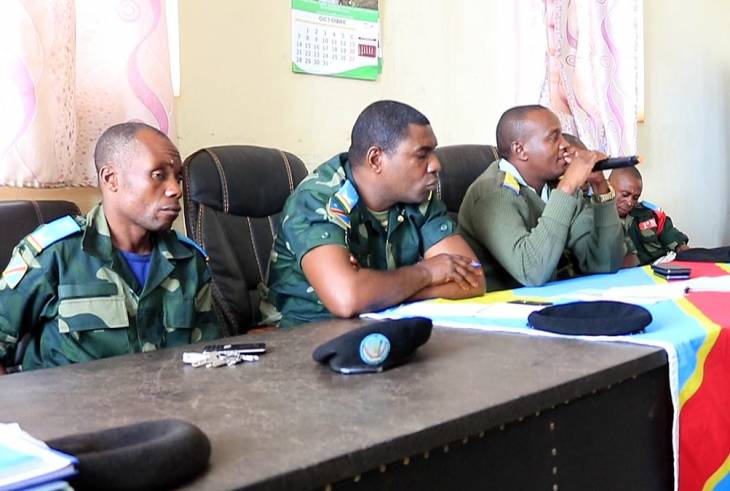
Congo warlord gets life for crimes against humanity
A military court in the Democratic Republic of Congo sentenced Frederic Masudi Alimasi to life in prison after a two-month trial. Alimasi, AKA Kokodikoko, was head of the Raia Mutomboki, one of the most powerful militias operating in the Eastern DRC. He was arrested in April on multiple charges including murder, rape and enslavement committed against the civilian populations of two villages in 2018. The case saw the use of mobile courts, conducting hearings where the victims live. This relieved them of the burden of travel, and enabled victims who had not been able to take part in the initial investigation to appear and have their testimony entered into the record. (Photo: JusticeInfo.net)


